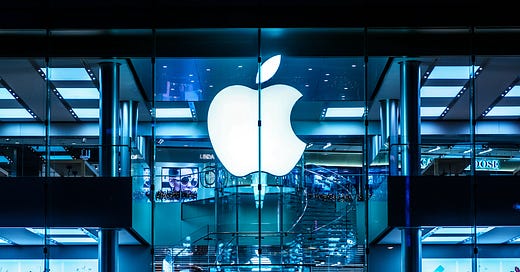No record seems to resist the Cupertino company. At the beginning of this year, Apple became the first company to exceed a market cap of $3T. If it took 38 years for the company founded by Steve Jobs to reach a market cap of $1T after its IPO, it took only two years to reach $2T in mid-2020, and finally, one and a half years to reach $3T.
Keep reading with a 7-day free trial
Subscribe to Sylvain Saurel’s Newsletter to keep reading this post and get 7 days of free access to the full post archives.




